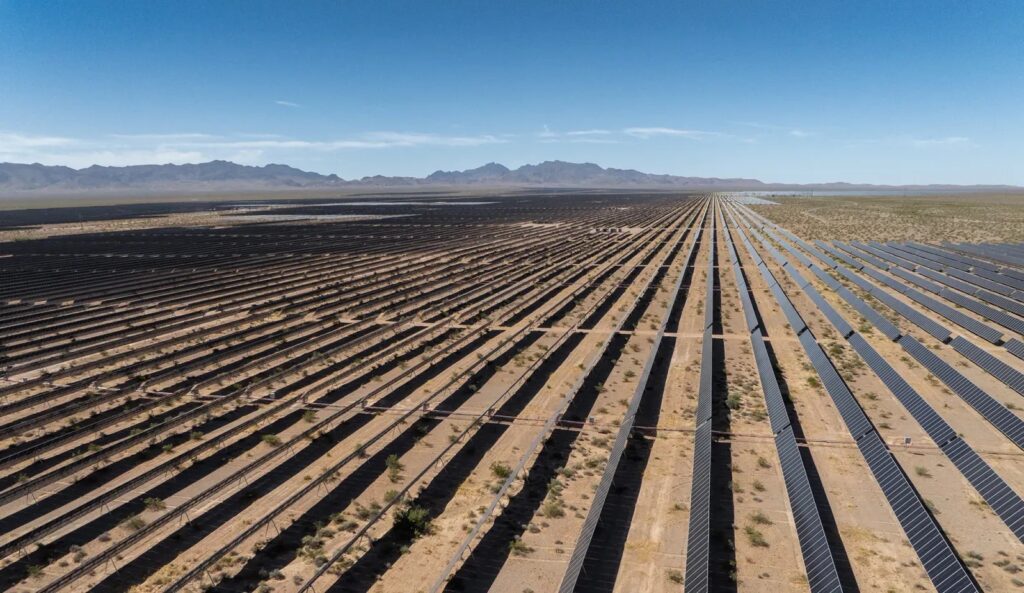In a political climate where clean energy initiatives hang in the balance, the recently proposed House Republicans’ budget bill has sparked intense debate over the future of the Inflation Reduction Act (IRA). This sweeping climate legislation, originally enacted by Democrats in 2022, has been pivotal in driving clean energy investments, particularly in Nevada. However, the new budget proposal places several of these initiatives at risk, raising concerns across the industry.
Impact on Clean Energy Credits
The House Republicans’ budget proposal has drawn criticism for its potential to dismantle key provisions of the IRA. The bill suggests cutting two critical demand-side tax credits by year-end: the 30D credit for American-sourced electric vehicle purchases and the 25D credit for rooftop solar installations. Additionally, investment and production tax credits, essential for clean energy projects, are slated to be phased out starting in 2029, with complete termination by 2031.
Modifications to the 45X manufacturing tax credit, integral for financing operations in critical minerals and battery production, are also on the table, with a phase-out beginning in 2031. The proposal further eliminates the transferability of tax credits post-2027, a mechanism that currently provides flexibility for companies that have yet to profit or pay taxes.
Another significant change involves altering eligibility criteria for tax credits, requiring projects to be “placed in service” rather than just commenced. This, combined with complex foreign entity of concern provisions, could restrict companies’ ability to source materials from certain countries, primarily targeting China.
Ripple Effect in Nevada
Nevada has seen a substantial boom in clean energy investments due to the IRA, with the Clean Investment Monitor reporting approximately $28.3 billion announced for low-carbon energy projects in the state. However, $15.4 billion of this remains unspent, and the proposed changes could jeopardize these projects, particularly those yet to commence, due to new financing and sourcing restrictions.
Albert Gore III, president of the Zero Emission Transportation Association, expressed concern over the bill’s timing, highlighting that the manufacturing 45X tax credit’s early phase-out and the elimination of the 30D consumer tax credit could undermine incentives for automakers to localize operations, including lithium sourcing in the U.S.
Nevada’s unique position as home to the only operational lithium mine in the nation underscores the importance of maintaining these credits. Projects like Thacker Pass and Rhyolite Ridge are pivotal for the state’s economic landscape, having secured federal loans and partnerships with major automakers. Harry Godfrey of Advanced Energy United emphasized the potential for demand destruction, cautioning that Nevada’s lithium industry may struggle to compete without federal support.
Energy Cost Implications
The ramifications of the proposed budget extend beyond industry growth to potential increases in energy costs. The Clean Energy Buyers Association warns that repeal of key credits could result in a 7.3 percent rise in electricity prices for Nevada households from 2026 to 2032.
Political Standoff and Future Prospects
Some Republicans in the Senate have already expressed reservations about the bill, advocating for the retention of subsidies for less mature technologies. Rep. Mark Amodei (R-NV), while initially firm on preserving certain credits, now suggests that demand for Nevada’s lithium may persist without the 30D credit, though industry voices remain skeptical.
Efforts are underway to amend the proposal, with moderate Republicans pushing for changes, including revising foreign entity provisions, restoring credit transferability, and reverting to the previous construction standard for credit eligibility. Despite these efforts, no representatives have threatened to withhold their votes, indicating ongoing negotiations.
Local and National Reactions
At the state level, the bipartisan push for renewable energy continues, leveraging Nevada’s natural resources like lithium and solar potential to diversify its economy. As negotiations unfold, the focus remains on how effectively stakeholders can influence the bill’s trajectory and its implications for Nevada’s clean energy future.
Additional Legislative Developments
💦Colorado River Concerns — Rep. Susie Lee (D-NV) has raised issues over land sales in Utah potentially impacting Colorado River water negotiations. She has called for the withdrawal of related bill portions.
🏭Apex Authorization — A bill by Rep. Steven Horsford (D-NV) allowing hazardous project development on federal land passed the House, facilitating technical corrections to the Apex Site land.
Further Reading
Inside Climate News: Locals oppose ‘insane’ plan to sell 500,000 acres of public lands for housing in Nevada and Utah
The Nevada Independent: GOP budget includes ‘no tax on tips’, fulfilling Trump promise, NV Democrats want more details
AP News: Las Vegas man sentenced to prison for threatening US Sen. Jacky Rosen and her family
Notable Quote
“When your chief global competitor sells product into the market consistently below its cost to produce that product, that creates a huge problem. There’s no substitute for the combination of [tax credits] in solving that problem.” — Albert Gore III
Original Story at thenevadaindependent.com
